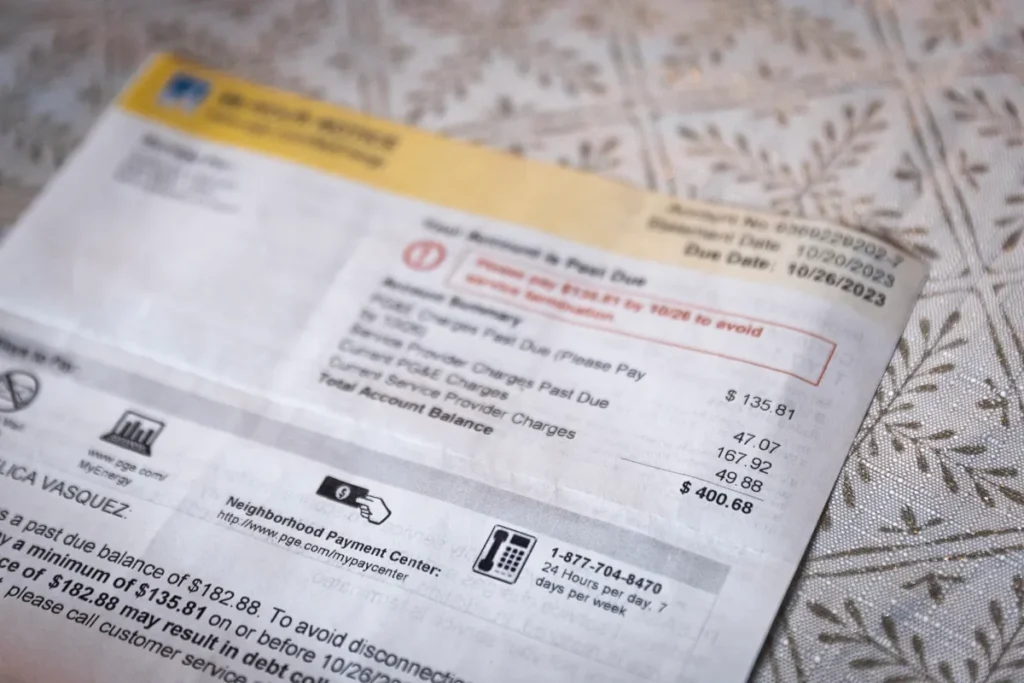Alicia Johnson of Savannah, a Democratic candidate for a seat on Georgia’s Public Service Commission, in Atlanta on May 7, 2025. In an upset, Democrats ousted two Republican members of Georgia’s utility board on Nov. 4. The races are seen as a bellwether for the midterms. (Audra Melton/The New York Times)
Share
|
Getting your Trinity Audio player ready...
|
In an upset, Democrats ousted two Republican members of Georgia’s utility board on Tuesday, according to preliminary results from the secretary of state’s office.
The closely watched races for two of the five seats on the Georgia Public Service Commission had been viewed not only as a referendum on rising electric bills but also as a bellwether for next year’s contests for governor and U.S. Senate.
Since 2007, no Democrat has served on the commission, whose members have six-year terms. But the two Democratic candidates tapped into anger over rising electric bills at a time when prices have risen sharply across the country. Over the last two years, the commission has approved six rate increases for Georgia Power, the state’s largest electric provider.
The obscure but powerful commission is ordinarily an electoral afterthought. In 2020, however, a federal lawsuit contended that the statewide elections for commission seats, which represent geographic districts, were unfair to Black voters. An appeals court eventually ruled against the plaintiffs, but the legal battle delayed elections for the commission. That set the stage for Tuesday’s races, the only statewide elections in Georgia this year.
According to the Georgia secretary of state’s office, Peter Hubbard, a Democrat, defeated Fitz Johnson, the Republican incumbent who was appointed by Gov. Brian Kemp, in the race for the seat representing greater Atlanta.
In the other contest, between candidates from northeastern Georgia, Alicia Johnson, a Democrat, defeated Tim Echols, the Republican incumbent who has held office since 2011.
Hubbard is a clean energy consultant; Johnson is a health management and community development executive.
Energy costs rose sharply around the country in 2022, driven by a spike in natural gas prices when Russia invaded Ukraine. In Georgia, additional factors in the state’s high utility bills have included $17 billion in cost overruns from nuclear generators and new infrastructure to support an anticipated surge in electricity demand from data centers.
Kemp and the utility commission praised a deal this year with Georgia Power to freeze base rates for three years. Critics, though, contended that ratepayers would still have to cover hundreds of millions of dollars in fuel and storm-damage costs.
Democrats criticized Republicans for embracing fossil fuels to generate electricity for data centers, as well as for backing away from clean energy, in lock step with the Trump administration.
Heading into Tuesday, Republicans had fretted over turnout, given that municipal elections in Atlanta and other Democratic strongholds were also being held.
Republicans were also anxious that a Democratic victory in even one of the utility races could be a harbinger for 2026, when elections will be held for governor; the U.S. Senate seat held by Jon Ossoff, a Democrat; the Republican-controlled state Legislature; and two more seats on the utility commission. Those anxieties prompted attempts by Kemp and other Republican officials to rally the party faithful.
—
This article originally appeared in The New York Times.
By David W. Chen/Audra Melton
c. 2025 The New York Times Company
RELATED TOPICS:
Categories

SNAP Recipients Plan Thanksgiving, Down to Their Last Cent

A Year Later, Donors to Trump’s Transition Come to Light

How to Watch the Macy’s Thanksgiving Day Parade
















